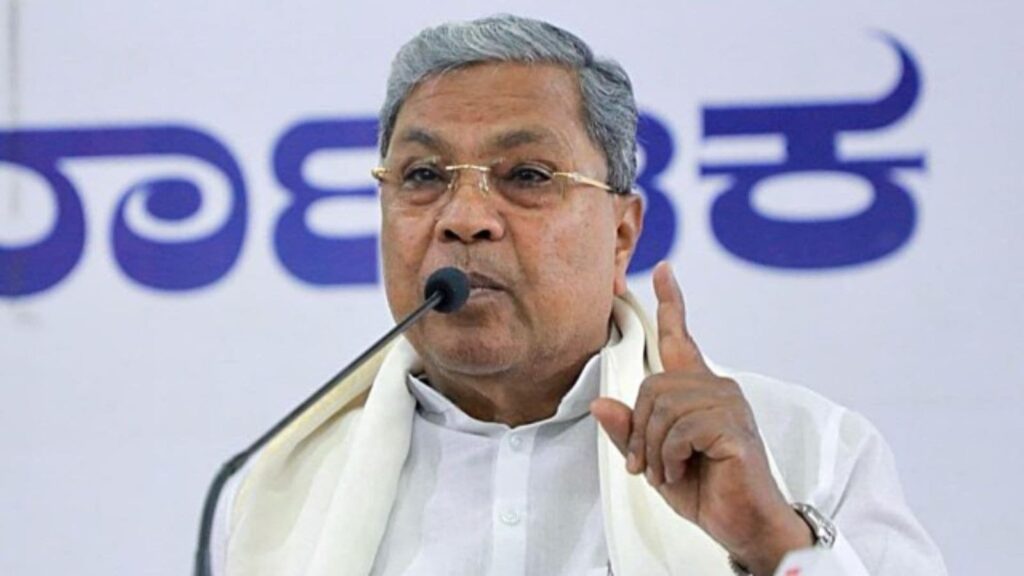A special court for cases against elected representatives in Karnataka has turned down a plea by an RTI activist for changing the investigating officer in an alleged corruption case against Karnataka Chief Minister Siddaramaiah and his family over 14 alternate sites allotted by the Mysuru Urban Development Authority (MUDA) in exchange for the acquisition of land.
The special court, however, directed the Karnataka Lokayukta police to complete its investigations in the complaint filed by the activist, Snehamayi Krishna, in two months.
“The application filed by the complainant under Section 156(3) of Cr.P.C., requesting the court to issue directions to the Investigating Agency i.e., Karnataka Lokayukta, to change the Investigating Officer is hereby rejected,” the special court said in its October 9 order.
“Considering the peculiar facts and circumstances of the case, the investigating agency is hereby directed to complete the investigation as expeditiously as possible and within an outer limit of two months from today without seeking for further extension of time to file the comprehensive report,” the special court said while posting the matter for November 15.
Krishna had moved an application alleging that the investigations were being delayed on account of the investigating officer expanding the scope of the probe to all allotments made by MUDA under a 50:50 exchange scheme.
He also alleged that the investigators were trying to protect Siddaramaiah and his family members by filing a closure report in the case, citing the lack of sufficient evidence. The activist sought action against the Karnataka Lokayukta police chief, “who had accorded permission to file ‘B’ Final Report”.
The Lokayukta police, however, presented details of the investigations conducted so far and also an affidavit of the investigating officer.
Story continues below this ad
Krishna argued that the inclusion of 134 people who were allotted as many as 1,055 sites under the MUDA’s 50: 50 exchange scheme in the scope of the probe would lead to complications and voluminous amounts of data. He sought directions from the court for the investigators to stick to allegations against Siddaramaiah and his family.
“Without expressing any opinion about the veracity of the ‘B’ Final Report submitted by the investigating agency, in my humble opinion, the contentions urged by the complainant does not hold water at this juncture,” the special court ruled on Thursday.
The court pointed out that the complainant himself had stated that the scope of the alleged MUDA illegalities extends to multiple individuals who were beneficiaries of the 50:50 land compensation scheme, where developed MUDA land to the extent of 50 per cent of land wrongly acquired by the MUDA was awarded as compensation.
“It cannot be disputed that the complaint averments and the cause title of the complaint also indicates that though only four persons are arraigned as accused persons, candidly the allegations in the complaint indicates of the involvement of various officials, which is required to be investigated by the Investigating officer,” the court ruled.
Story continues below this ad
From closure report to judicial commission probe
In February, the Lokayukta police filed the closure report in the MUDA land allotment case, citing the lack of evidence to establish Krishna’s allegations that Siddaramaiah profited to the tune of ₹56 crore after his wife received 14 housing sites from MUDA in 2021 in exchange for a 3.16-acre plot acquired by the Authority. Following the controversy over the allotment, Siddaramaiah’s wife returned the housing sites to the MUDA last year.
The Directorate of Enforcement (ED), which investigates cases of money laundering, provisionally attached 142 properties worth Rs 300 crore in connection with its investigation into alleged large-scale irregularities in the MUDA allotment. However, the properties of Siddaramaiah’s family were not attached.
On March 7, the Karnataka High Court quashed summons issued by the ED to the CM’s wife and the state Urban Development Minister B S Suresh in the MUDA matter, by emphasising that an individual cannot be compelled to give a statement in a PMLA case when no incriminating material has been found against them. This order was upheld by the Supreme Court.
In April this year, the special court kept its decision in abeyance on acceptance or rejection of a closure report filed by the Lokayukta Police in the case. The court, however, allowed the Lokayukta police to continue its probe till the filing of the final report of all its investigations.
Story continues below this ad
The special court also said in April that the ED, which filed a protest petition against the Lokayukta police closure report in the case, can also continue its investigations with respect to a Prevention of Money Laundering Act (PMLA) case registered by it over the MUDA land allotments scam.
Last month, a judicial commission headed by a retired high court judge, which was assigned to investigate allegations of corruption and maladministration in MUDA, reported that there was no wrongdoing in Siddaramaiah’s family being given 14 developed housing sites.
The Justice P N Desai Commission, however, found large-scale irregularities in the functioning of MUDA in the 2020-2024 period and recommended criminal investigations and action against its officials as well as cancellations of site allotments done by MUDA under the 50:50 land scheme after March 2023, when the scheme was flagged as violating rules.

